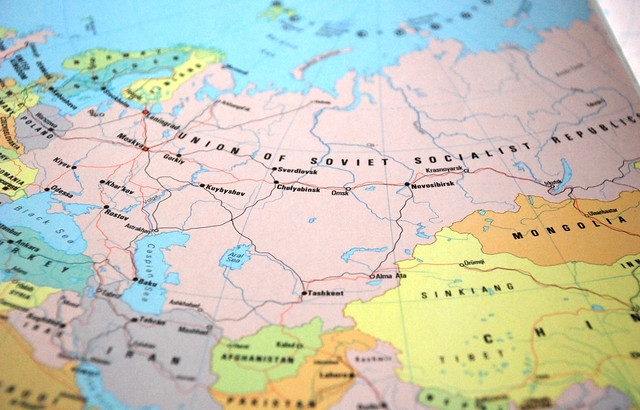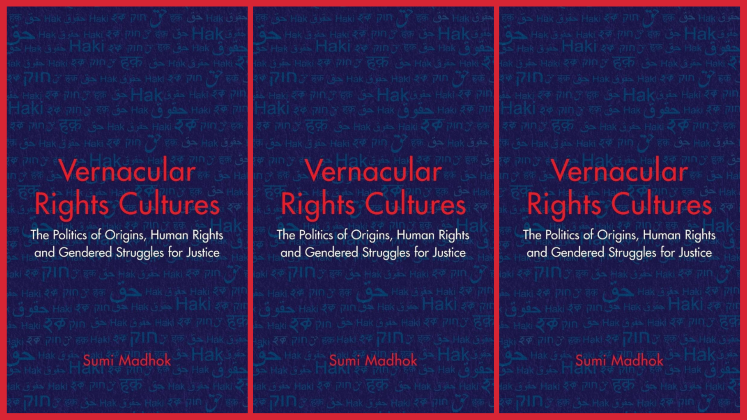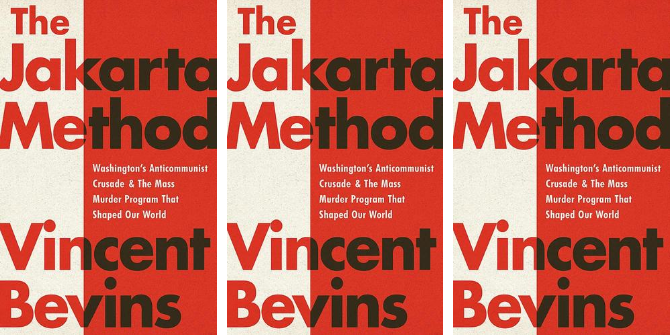Can the internet fundamentally challenge non-free regimes? For many, the role that social networking played in political change in the Middle East and beyond raises important questions about the ability of authoritarian leaders to control the information sphere and their subjects. Revolution Stalled analyses the contemporary Russian internet, aiming to illuminate how and when online activity can spark political action. Luba Pirgova recommends the book to those interested in media history, social media, and public life in Russia.
Revolution Stalled: The Political Limits of the Internet in the Post-Soviet Sphere. Sarah Oates. Oxford University Press. May 2013.
In Revolution Stalled: The Political Limits of the Internet in the Post-Soviet Sphere, Sarah Oates focuses on the role of internet media as a vehicle for both endorsing and stagnating democracy, by ensuring political control in the hands of a select elite while simultaneously providing a platform for discussion and civil society organization. Revolution Stalled – the fifth book in which Oates examines the relationship between media and democracy – aims to show how internet media could potentially allow citizens to shape political spheres, and at the same time the book also highlights the barriers and measures put in place to prevent that from happening, specifically in the case of Post-Soviet Russia.
Oates analyses ‘internet use, changes in this use, and attitudes of the online audience, as well as how government policy and laws may encourage or contain online engagement’ (p 21). What makes this book stand apart from the limited number of books in this area is the stipulation that any understanding of the role of media must be placed in both the global and local media contexts. This context-sensitive approach, while acknowledging a set of global rules, allows the reader to appreciate the complexity of the topic and the multiple layers of analysis needed as explored in the book. The chapters follow five layers of analysis, which are referred to as ‘content, community, catalyst, control and co-optation’ (p 25). I would that argue Oates’s book can be a very useful tool for understanding other current events and help predict possible outcomes, for example the protests in Bulgaria, another post-socialist state.
The first chapter describes key themes and studies from the political communication literature. Theories from both ‘cyber-optimistic’ and ‘cyber-pessimistic’ schools of thought are discussed. On the optimistic side, Habermas argues of the affordances of the internet in fostering communication and the potential to create a new dimension to the existing ‘public sphere’ (p 31), while Norris notes how ‘a greater range of choice and engagement with the media is correlated to more informed, engaged citizens in democracies’, or the ‘virtuous circle’ (p 34). On the pessimistic side are theories such as those of Gibson, who suggests that political parties use the web to reproduce current hierarchies and boundaries that serve their own interests by employing various forms of control and coercion (p 32). After a thorough examination of the literature, Oates proposes that the analysis of the content of Russian internet media must reflect the context and the national constraints over the media systems, such as political party control, in addition to the freedoms and affordances of internet media in a broader context.

The following chapter shows the opportunities provided by internet media in Russia, such as the building of internet communities and an understanding of audience perspective. For instance, an analysis of the 2010 National Survey is included as an example (pp 68-78), which shows the attitudes of 2,017 Russians as placed in the nexus between political, media and social networks. Other examples include the EU Kids Online network that describes age-related behaviour (pp 79-80), and the ‘Levada’ survey that attempts to explain the relationship between online and offline protester behaviour (pp 85-86).
The next chapter, on the other hand, depicts the various forms of control and co-optation present in Russia including both overt and covert control. These can range from public policies and laws (pp 93-94) to ‘self-censorship’ for fear of consequences or as the direct result of intimidation. Oates describes the theories of Deibert et. al. of the ‘third generation of internet control [or the ability of] states to deploy the internet in a carefully choreographed manner that simultaneously promotes state interests through propaganda; discredits opponents via information campaigns or strategic take-downs of internet sites at critical political moments; and enables selective intimidation or arrest of cyber dissidents’ (p 100). These theories are very useful for the understanding of the role of internet media in the political sphere. For example, the notion of the third generation shows how currently, in Post-Soviet Russia, there is a much more complicated censorship model in place, contrary to China’s multilayered filtering regime that overtly controls the internet flow in China, or the similar models during Soviet Russia.
The last three chapters of the book all depict different uses of the internet as a tool for political communication. One chapter follows the internet media as a political tool harnessed by the four main political parties in the Duma and how these parties engage with the internet in order to suppress opposition and spread propaganda in an effort to maintain the status quo. The next chapter depicts how ‘firestorms’, or catalysts, can cause people to engage with a certain topic, on-line and off-line. The final chapter explores the ‘winter of discontent’ and the protests following the falsification of the Russian Election results in 2011-2012. There are seven factors discussed, which Oates argues all contributed to the ‘winter of discontent’, namely: ‘(1) the failure of state “soft” controls that relied on the traditions of self-censorship; (2) an online sphere that was freer than traditional mass media; (3) an explosion in internet use that erodes the dominance of state-run television; (4) a lack of understanding about citizen attitudes and the online sphere on the part of the Kremlin; (5) crowd-sourcing; (6) online political networks; and (7) the role of online social entrepreneurs’ (pp 165-166). The factors are explored and defended one by one, forming a very persuasive argument about the role of the internet media in the political sphere in Russia both on and offline.
The book concludes by suggesting that the evidence from the Russian case shows how the online sphere alone cannot help democratization, but it can be part of the process by providing an opportunity to engage with and organize a civil response. However, having said that, it is up to the individual members of the public, as well as the Russian society as a whole, to decide if the potential freedoms provided through internet media would be embraced or ignored. It is my belief that Oates defends her arguments with absolute ease and elegance. Having targeted a wide readership audience, the book is written in a very clear and comprehensible manner. The arguments are connected in an incredibly insightful manner and a style that allows even a reader without prior background into Russian culture, media theories or political communication to follow the line of thought Oates presents. I would most fervently recommend this book to anyone interested in the subject.
——————————————————
Luba Pirgova has an MA (Hons) in Sociology, International Relations, and Film and Visual Culture from the University of Aberdeen, Scotland. She also has am MPhil in Modern Society and Global Transformations from the University of Cambridge, England. Luba is currently enrolled in the PhD program of the Psychology department at Cardiff University, where she is affiliated with the social psychology, the understanding risk, and ethnography, culture and interpretative analysis research groups as well as the energy biographies project. Read more reviews by Luba.







